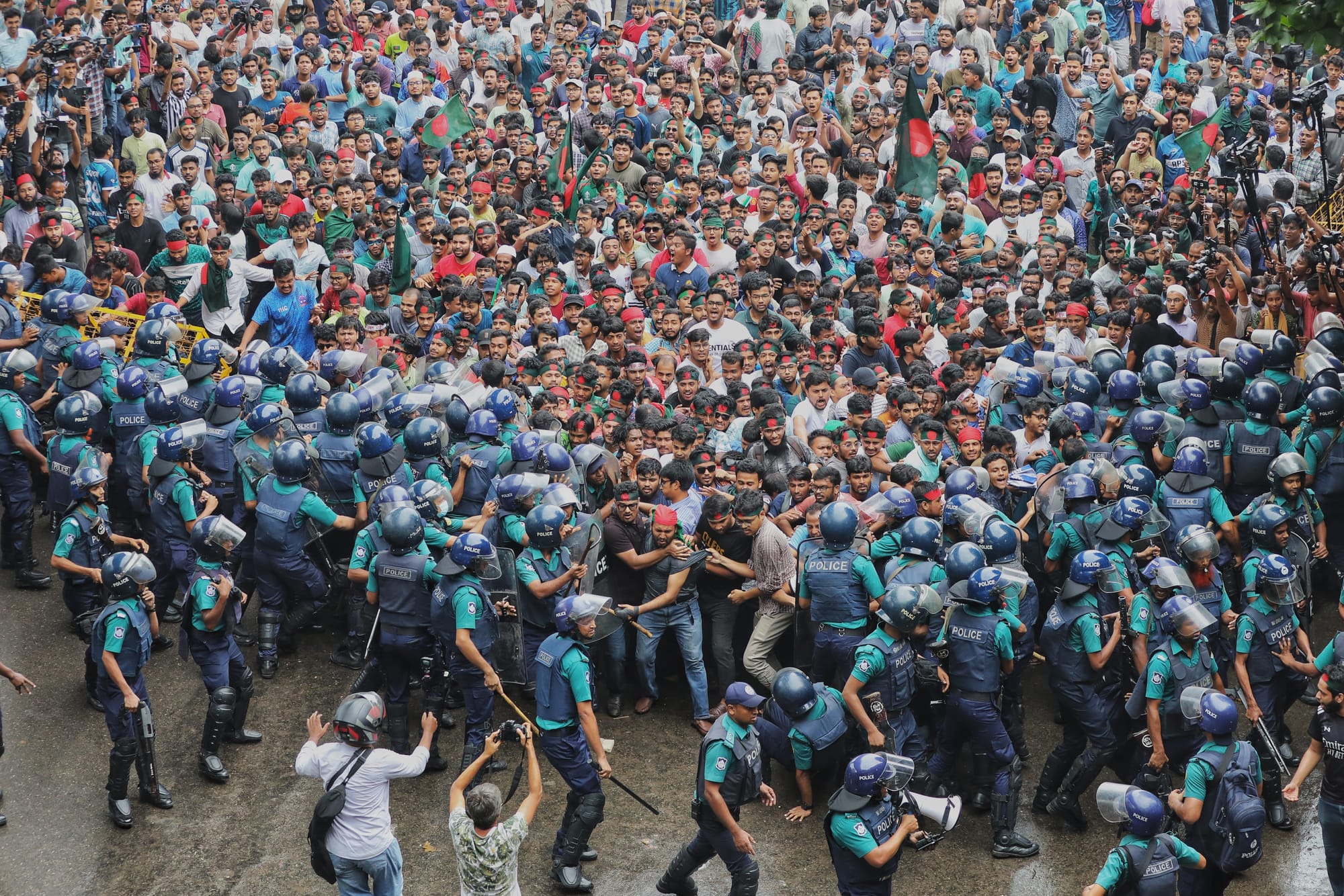UN experts, human rights chief condemn Bangladesh crackdown
19 UN experts and the top UN human rights official release back-to-back statements condemning the Bangladesh government’s violent crackdown on protests.

Top United Nations experts and the UN human rights chief called on July 25th for an end to the Bangladeshi government’s “violent crackdown” against protesters, the disclosure of full details about the crackdown, and accountability for human rights violations during Bangladesh’s recent civil unrest.
The calls came in two separate statements: one signed by 19 experts, known as special rapporteurs, independent experts, and working groups, and the other by Volker Türk, the UN High Commissioner for Human Rights.
UN Secretary-General António Guterres separately raised concerns, including about the use of the UN logo on vehicles used in the crackdown.
These back-to-back statements underscore the severity of the crisis in Bangladesh as perceived by the United Nations and followed a weeklong brutal onslaught on civilians in the streets of Dhaka, the capital, and other cities.
“We have been alarmed by the large number of unlawful killings, possible enforced disappearances, torture and the detention of thousands of people,” reads a statement endorsed jointly by eight special rapporteurs, seven members of two UN working groups, and two independent experts.
The experts include Irene Khan, the Bangladeshi-born special rapporteur on freedom of opinion and expression.
For his part, Volker Türk, the top UN human rights official based in Geneva, called for the disclosure of full details of the government’s violent response to protests and urged any law enforcement response to abide by international law.
“We understand that many people were subjected to violent attacks by groups reportedly affiliated with the Government, and no effort was made to protect them,” he said in a separate statement.
The local press in Dhaka counted more than 200 individuals killed based on hospital records and family statements.
The killings of students are widely attributed to the police and its elite unit, the Rapid Action Battalion, the border forces, the military, and other organs of the ruling Awami League, including its student wing, the Chhatra League.
More than 61,000 people, including unidentified ones, have been implicated in legal charges, a prelude to the upcoming legal persecution.
Over 3,000 individuals, including many members and top officials of the opposition Bangladesh Nationalist Party, were detained, according to local press.
Türk’s statement added that some injured individuals were denied medical care, and many are missing.
Top leaders of the protesters were abducted by state agencies without acknowledgement and publicly displayed signs of physical torture, as reported by Netra News.
“We are deeply concerned by reports of targeted attacks, threats, intimidation and retaliation by the authorities and Government-aligned groups against protest leaders, political activists, human rights defenders and journalists,” the 19 experts added in their joint statement.
They asked the government to initiate a credible accountability process and, “given the Bangladesh Government’s history of broken promises,” to accept United Nations support for investigations.
The UN human rights chief also requested “an independent, impartial, and transparent inquiry” into all reported human rights abuses.
A Netra News editorial earlier called for a United Nations-led commission of inquiry into the violence used by state forces in Bangladesh.
Both statements decried the government’s blanket internet shutdown, which isolated Bangladesh from the rest of the world.
Even days after the apparent calm, the government restored only fixed-line internet, and that too only at select locations, as reported by Netra News citing confidential government orders.
The high commissioner has called for a “guarantee” that such a crackdown will not be repeated and that there will be no reprisals against protesters.